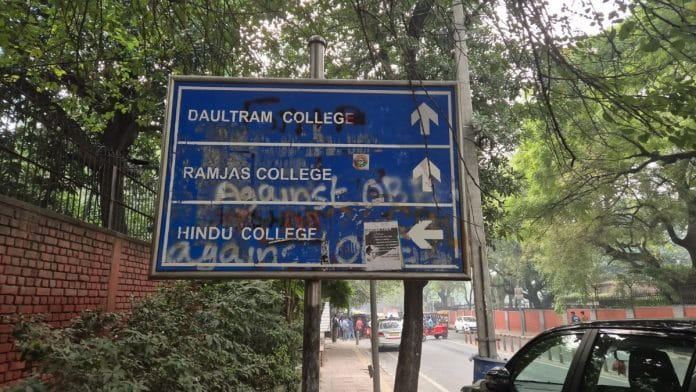New Delhi: Rajiv Kunwar, a Hindi professor, entered a packed room at Dyal Singh College for his tutorial class. The minute he crossed the threshold, most students got up and left. Only four in the crowd were actually waiting for the Hindi tutorial to begin, the rest were just occupying an empty room. Kunwar merely smirked. This meagre strength is a teaching reality he has grown accustomed to over the past four years.
“Absenteeism is at its peak. Our admissions have also dipped, an entire section of students has vanished,” he said.
Dyal Singh College is among the worst impacted by Delhi University’s falling enrollment numbers.
Delhi University is being fundamentally reshaped and is bursting at its seams. Just five years ago, DU’s cut-offs were soaring, requiring over 98-99 per cent in Class 12 boards for admission into its prestigious colleges. For two decades, admissions were on steroids, with colleges routinely oversubscribing seats by about 30 per cent. Now, the university is conducting ‘mop-up rounds’ to fill vacant seats. This situation is compounded by female enrollment being at an all-time low and the centralised CUET system causing persistent delays in the admission process. The silent but stunning slide of Delhi University from its heady years is one of the biggest shocks to the public university system in India. And yet, nobody seems to be in a hurry to rescue it. Despite rising NIRF rankings, teachers and students across the campus echo a common sentiment in hushed whispers—Delhi University is in a free fall.
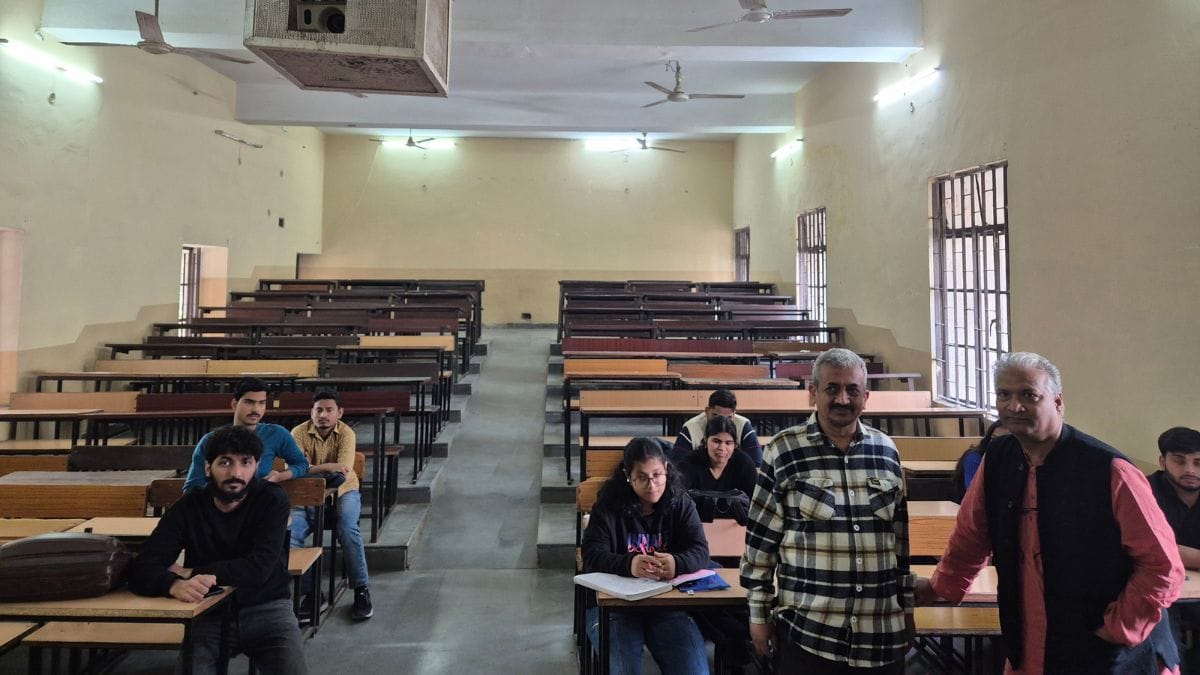
At the other end of Delhi, in the North Campus, teachers in the staffroom of an elite college rue that the institution has been hollowed out. They say the university and the college are no longer attracting top students or teachers. For the first time in their decades-long careers, their deep sense of pride for the college is shaking, with a slew of recent changes in the way Delhi University operates being their primary complaint.
“We’re no longer attracting the best of merit, at least when it comes to teachers. Not that the earlier system was perfect, but now a lot of ideological corruption has seeped into the recruitment process. Not just our college, the entire university is going through an existential change,” one of the teachers from Hindu college said.
Changes sweeping the system—concerning admissions, curriculum content, teaching methods, and faculty appointments—have completely overwhelmed established norms. The traditional academic order is in shock: While the Left faculty and student bodies publicly scream about the rapidly degrading quality, even ABVP representatives are quietly murmuring the same serious concerns.
Absenteeism is at its peak. Our admissions have also dipped, an entire section of students has vanished.
– Rajiv Kunwar, Hindi professor, Dyal Singh College
This upheaval is further highlighted by the university’s pivot from critical academic topics like land rights toward organising events focused on cow welfare. A conference on Brahmin welfare was cancelled after stiff student opposition last year. A talk by Supreme Court lawyer Prashant Bhushan on ‘challenges to the Indian Constitution’ was cancelled last minute in 2023.
The Common University Entrance Test, CUET, has been heavily criticised by both students and university faculty for its lack of transparency and efficiency.
“Papers come with varying degrees of difficulty. My paper could have a question: “Name the first president of India”, while the other student might be asked “Name the hospital in which the first president of India died”. How can these two students be judged the same? The normalisation process is completely opaque, and their formulas are confusing,” a history student at Hansraj college said. Normalisation is meant to level the playing field by taking into account the degree of difficulty across papers.
Teachers, who were once responsible for the admission process, now find themselves dealing with administrative disarray. The ultimate failure of the system is highlighted by the necessity for multiple ‘Spot Mop-Up Rounds’ to fill thousands of seats that remain vacant even halfway through the semester, leading critics to question the efficacy of CUET as a fair or reliable admission mechanism for a premier university. In these rounds students could go to colleges with their Class 12 board results and secure admissions if they fulfill necessary criteria.
The CUET is also blamed for the falling female enrollment at the university. In 2021, women comprised 61 per cent of student strength, which has now reportedly fallen to 54 per cent. The fall is most evident in ‘peripheral’ colleges.
“CUET creates an entry barrier, especially for students from economically disadvantaged sections who cannot afford coaching,” said Abha Dev Habib, a professor at Miranda House.
Delhi University has lost its X factor to private education. Even as teachers talk scornfully about private colleges like Shiv Nadar, Ashoka, Symbiosis, many top performing students, especially from strong economic backgrounds are now finding more prestige in these institutions. Even under-performers say that going to a private university ensures a more well-rounded education.
CUET creates an entry barrier, especially for students from economically disadvantaged sections who cannot afford coaching
– Abha Dev Habib, professor, Miranda House
“I took admission in SGT university in Gurugram, because classes happen here with discipline. In DU class cancellations, politics are common, so I didn’t want to go there,” a BSc student and resident of Najafgarh said. The student had applied to Delhi University in 2024, securing admission in Deshbandhu college.
Also read: Almost everyone in faculty is promoted in Indian universities. DU started the damage in 1970
Diluting honours courses
At Sri Aurobindo college, students sit on old broken furniture in an empty classroom and scurry to finish their homework. A first year BA economics student takes out a glitter pen and starts writing on a sheet with flowers decorating its borders. The subject is: Wetland Ecosystem. Environment-related subjects have become compulsory regardless of the course under National Education Policy (NEP) 2020.
The value added course I have taken is digital empowerment, and I am learning how to clean my Gmail as part of that course, can you believe it
– Paridhi, first year BSc life sciences
Delhi University’s course structure, known for its ‘honours’ courses, underwent a radical shift under the NEP. It introduced the Four-Year Undergraduate Programme (FYUP). It adopted a multidisciplinary and flexible Choice Based Credit System (CBCS). A student could choose to exit after two years with a Diploma, after three years with a Bachelor’s Degree with honors, or complete the full four years to earn a Bachelor’s Degree with Honours and Research. The curriculum is broken down into various course categories: Discipline Specific Core (DSC) courses form the foundation, complemented by Discipline Specific Electives (DSE), which allow for specialisation.
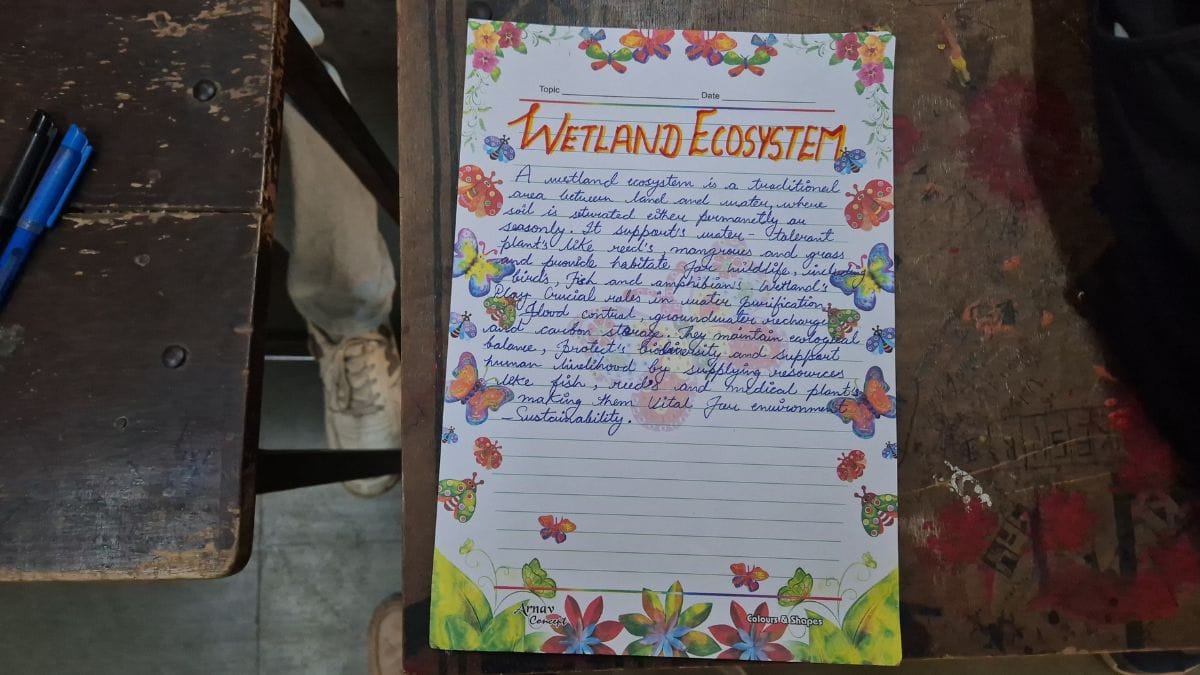
“Every time we speak to our seniors we get to know that they studied our subjects in more depth. Core subjects are being taken out of the syllabus left, right and centre. I am an economics honour student in my third year, and I haven’t even studied inflation in depth,” Krish, a student sitting next to his junior, complained.
Alarms have been raised over fewer classes allotted to core subjects by students. An economics teacher said courses over investment banking have been cut. Classes about the Israel-Palestine conflict, Kashmir conflict have been censored in the psychology syllabus.
Fifty-two mathematics teachers had petitioned against the reduction of time allotted to ‘core’ subjects like algebra and analysis at the beginning of the FYUP.
Teachers point out that the university is not ready for the four year programme infrastructurally, and the introduction of the new courses under the NEP, has led to neglect and dilution of core subjects under honours courses, which are Delhi University’s claim to fame.
Every time we speak to our seniors we get to know that they studied our subjects in more depth. Core subjects are being taken out of the syllabus left, right and centre.
– Krish, third year economics honours student
The credit distribution is standardised across all four years, requiring students to earn a minimum of 176 credits for the full four-year programme. The structure mandates multidisciplinary learning through the inclusion of non-major papers. These include Generic Electives (GE), which are chosen from disciplines outside the student’s main area of study to promote breadth; Ability Enhancement Courses (AEC), focusing on communication and environmental studies; Skill Enhancement Courses (SEC), aimed at practical skills; and Value Added Courses (VAC), covering areas such as the Indian Constitution and ethics. A mandatory component for the fourth year, for those opting for the Honours with Research track, is a Dissertation/Research Project, typically worth 12 credits, which forms the capstone of their studies.
This year, the first batch of FYUP, implemented in 2021, reached the fourth year. And only 30 per cent of students have chosen to stick around.
The New Education Policy in Delhi University hasn’t thrived among the students nor the teachers. The majority of students are over burdened by the courses in their skill enhancement or value added classes.
Honours courses were historically pivotal in DU, offering specialised, in-depth study in a single subject, which distinguished them from the broader pass courses. This focus allowed students to develop a strong theoretical and analytical foundation, making them the preferred pathway for high-achieving students aspiring to competitive exams and specialised fields.
“What really is the difference between me, who’s studying an honours course, and someone else stuck in the Bachelors of Arts programme?” a student at Ramjas college said with a snort. “The charm of DU was in the ability to be able to study a subject in depth. But now I am busy studying about photosynthesis in plants. It has all become a big joke.”
The NEP has also overburdened students, increasing time spent in class, from five hours to eight hours on an average.
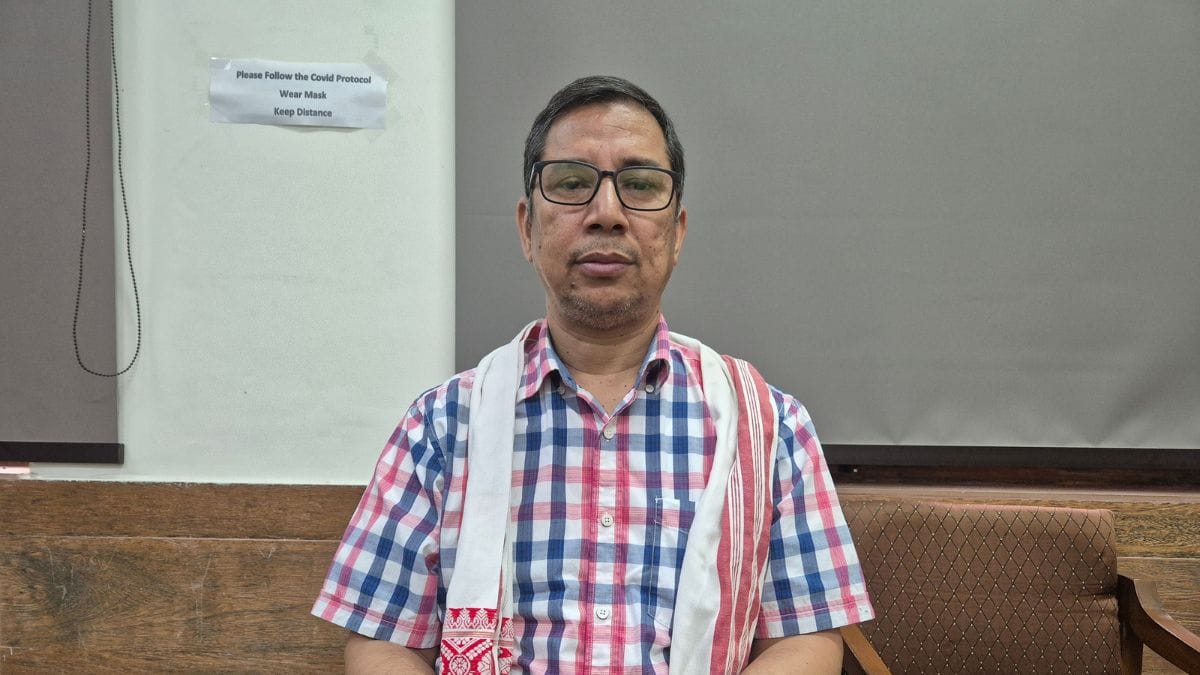
Ahmed, a life sciences student, wants to be all consumed by science. But he has no time for it. He is too distracted by courses that he says won’t benefit him. This includes courses such as digital empowerment and EVS.
“I am in college for six to seven hours, overburdened by value added or skill enhancement courses like Environmental Science that are adding no value to my life and career, sitting in college all day long. It is of no use,” the second year Life Sciences student complained.
The NEP has become a chore in the corridors of DU, and a stain on its reputation.
“We have asked for a review of the National Education Policy as it enters the fourth year. It has been followed in letter and spirit but there are some challenges on ground that need to be addressed. Students are engaged in colleges for five to six hours without rest, which kills the basic spirit for the NEP,” VS Negi, professor of geography, the president of Delhi University Teachers’ Association said. “Administrative processes are taking more time when we want more freedom for students.”
The syllabus also doesn’t inspire confidence among meritorious students. They say the courses have been completely dumbed down.
“The value added course I have taken is digital empowerment, and I am learning how to clean my Gmail as part of that course, can you believe it,” Paridhi, a first year BSc Life Sciences student, said.
Students say that even the additional courses they’re interested in aren’t being taught in a way that adds value. Teachers who are not domain experts are taking classes.
“We had an AEC course for Urdu, and the first exam was on an Urdu novel. Our teacher told us to simply write Urdu letters on the paper and that we’ll pass. That’s precisely what we did. I wanted to learn Urdu, but all I learnt was how to copy Urdu letters onto paper,” Ahmed said.
Students claimed that a lot of what they’re learning as part of these courses are government propaganda.
“They take us to the streets and hand us a broom as part of the Swachch Bharat course. And that’s fine. But what else do I learn about Swachch Bharat, the challenges, the policy moving forward?” Absolutely nothing,” Jayshree, a History student added.
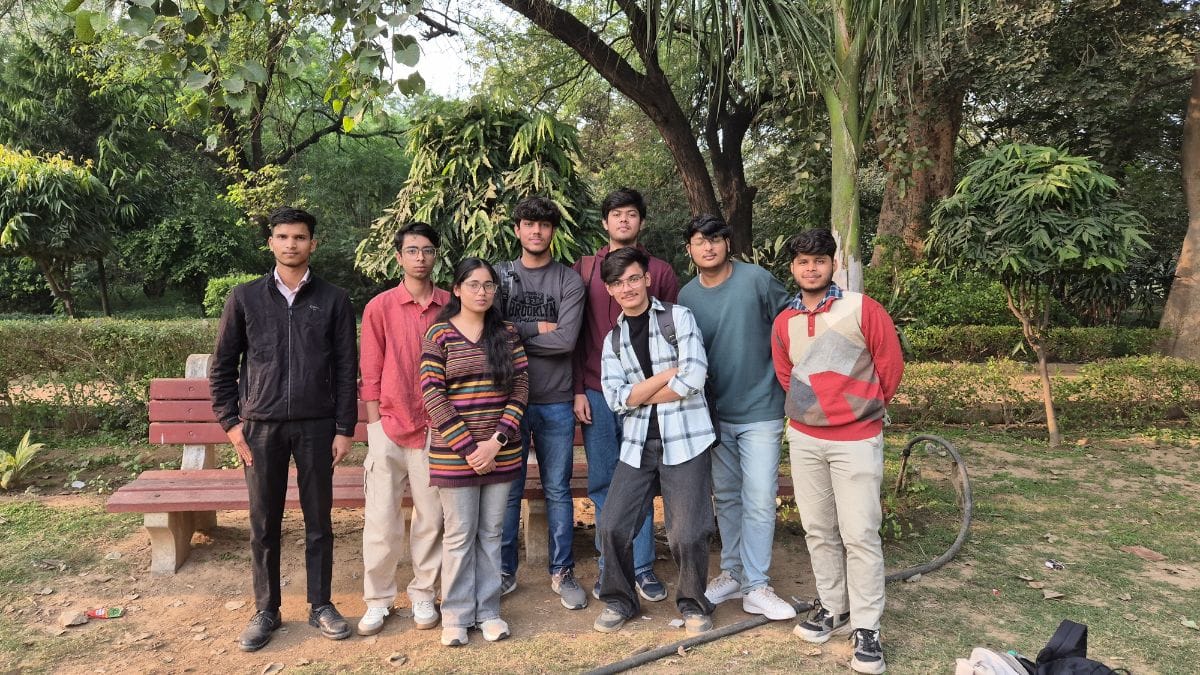
Also read: Delhi University is crumbling. And it has united NSUI, ABVP, AISA
Ideological battle
Indian universities have been the stage for an ideological battle for the past decade. Universities have stopped being ‘bastions’ of the Left. The RSS’ student wing, ABVP, has made significant in-roads and political gains in the higher education space.
Historically, Left-leaning faculty and student bodies gained significant influence in DU, particularly within the liberal arts and social science departments. This influence extended to the selection process for teaching staff, where critics alleged that individuals aligned with the prevailing Left-wing ideology or its associated circles were favoured for appointments over other candidates, potentially impacting the diversity of academic thought and leading to occasional charges of political bias or nepotism in hiring.
They [professors] are creating a fear in our minds against western civilisation, that whatever the west does is wrong, and want us to have a nationalistic sentiment. The teacher says very absurd things in class like AIDS is not a real disease.
– Nishank, law student.
The Right is now taking over. ABVP has consistently won student body elections since 2013, with just one break in (2024). This year, the RSS backed body won three of four central committee positions. But Right wing scholars still ring alarm bells over the condition of the university. There is consensus among all ideologies that the NEP stinks.
“For decades Delhi University was a Left bastion, and now we’re changing it, reclaiming it, what’s wrong in it? The Left shall get retributive justice!” One professor in the political science department roared.
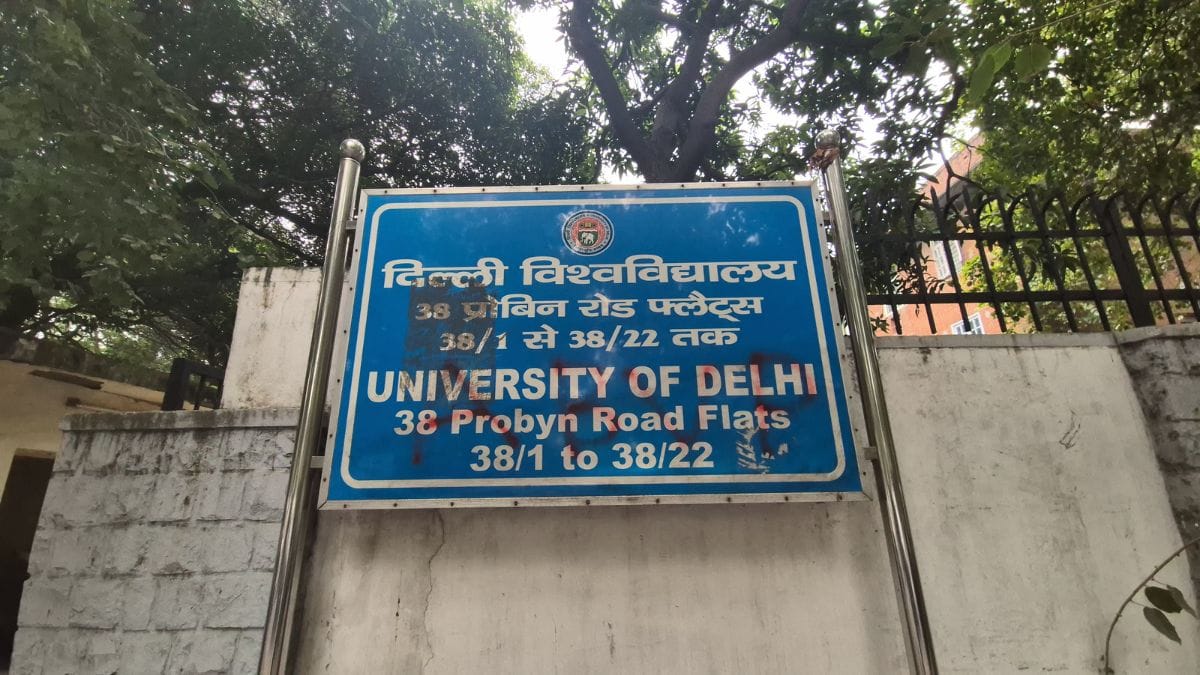
The National Democratic Teachers Front, seen to be RSS backed, has won the Delhi University Teachers Association Elections three times consecutively, ending the influence of Democratic Teachers Front, seen to be more Left-liberal.
But the professor quoted earlier confesses that this is easier said than done.
“The problem is, we don’t have sensible or able people guiding this change within the university,” he said with his head in his hands about the talent pool needed to bring about this shift intelligently without compromising on quality.
The allegations of ‘saffronisation’ of the syllabus, and changing politics and workings of DU is not disavowed ABVP representatives. But even they agree, the changes have cast a pall over the quality of syllabus.
Nishank, a student at faculty of law, had a bone to pick with his jurisprudence course structure. A complaint that was echoed by other students as well.
“We are taught everything but jurisprudence in that class,” he said, while another classmate nodded. “They are creating a fear in our minds against western civilisation, that whatever the west does is wrong, and want us to have a nationalistic sentiment. The teacher says very absurd things in class like AIDS is not a real disease. People die of consuming medicines. She talks of global politics all the time, but never really touches the syllabus,” the student added.
Other students also complained about being taught courses without a critical lens.
“We want to study classical Hindi literature. That is good. But the teachers should teach it through a critical lens as well,” a student of Hansraj college said. The student cited studying Arthashastra, but without the teacher critiquing gender bias in the text.
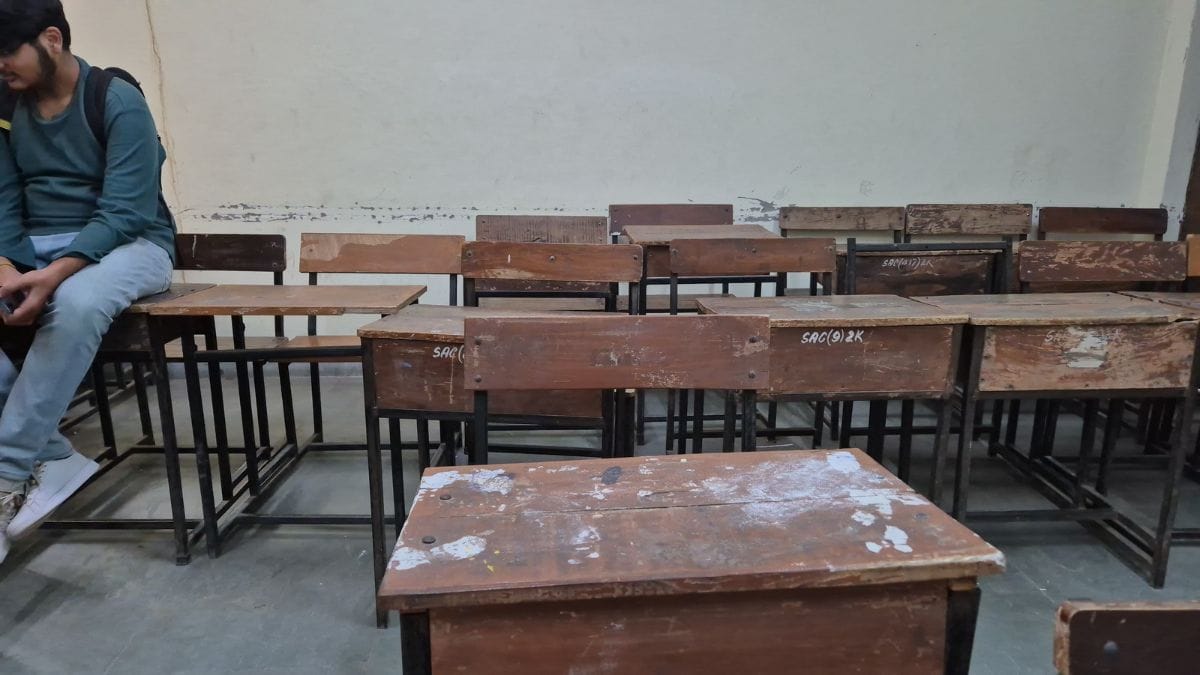
Another student complained about the level of courses he has to learn.
“In our Hindi class, they’re teaching us letter writing to the principal. That’s pretty basic stuff, why am I learning that in college?” Krish, a student of Economics at Aurobindo college said.
“There is big time meddling with the syllabus. The entire core course, structure, everything has been overhauled. From dedicating five lectures a week to a subject, we’re now able to give only three. A lot of topics have been altered,” Monami Basu, a faculty member at Kamla Nehru college and a member of the academic council, said.
Also read: DDA and Delhi University combo brought a biodiversity park revolution. Other cities envy
Recruitment problem
Hindu College staff room is filled with older faculty complaining about the recruitment process.
“An external member from Sonipat or Khushinagar is probably not qualified to choose teachers for Hindu College,” a professor complained.
The key change in DU’s recruitment process has been introduced via new Standard Operating Procedure. Under UGC norms, a typical selection committee includes the college principal, head of department, member of the governing body, and external subject expert. Earlier, college departments had more autonomy over choosing faculty, but it had led to allegations of nepotism.
The reforms to Delhi University’s teacher recruitment process, has faced criticism over valuing subjective markers over objectivity in the recruitment process. Teachers applying for the position of Assistant Professorship have to go through a three-step screening process. First, eligibility screening through degrees, followed by a presentation in front of an assessment committee, followed by an interview with a selection committee. Only 40 people can apply for a post at first notification.
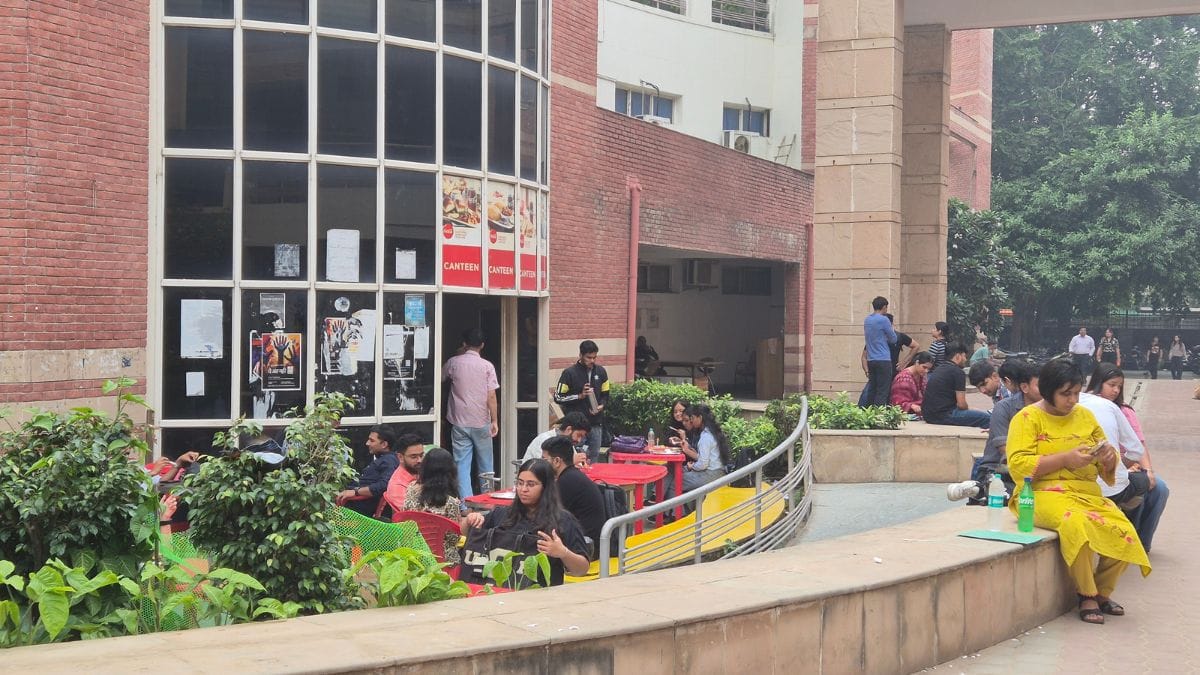
The presence of two externals appointed by the vice chancellor directly, threatens the autonomy of colleges in appointments.
Teachers murmur about corruption in the process. “If you’re aligned with the current dispensation, then you’re elected to teach at DU. And many of these teachers are not qualified to teach these students. One teacher fainted at St Stephens after they were bombarded by questions from students they couldn’t answer,” a teacher from Hindu college claimed. There are also reports of jobs getting ‘sold’ for Rs 50 lakh.
The issue of this corruption was first raised when many long-serving ad-hoc teachers were not able to secure jobs at the university.
The displacement of ad-hoc teachers in DU is a direct consequence of the permanent faculty recruitment drive that gained pace from late 2022 into 2023. As colleges filled sanctioned posts, many long-serving ad-hoc staff were relieved from duty after being unsuccessful in the interviews, despite years of service. This created widespread job insecurity for hundreds of teachers.
A professor affiliated with the RSS offered “no comments,” when asked about bias or corruption in appointments. “For years there was no academia to enable scholars to properly teach about Golwalkar or Hedgewar, so now we’re left with a bunch of incompetent teachers,” he said.
As Delhi University crumbles, its ethos shifts and culture transforms, alumni of the college look on helplessly. Some feel the private universities have usurped the place of DU, and the biggest casualties of this change are disadvantaged students.
“Killing academic and intellectual quality of public universities ruins society. Public university is the only place where different classes mix. And if you ruin the intellectual calibre of public universities, the first people to quit will be top tier academics and students from the upper class,” a former student of Ramjas college said. “Instead of a healthy social and intellectual space which allowed for mixing, you have now sequestered people by affordability.”
For Dyuti Prasad, an economics student at Aurobindo college, who grew up listening to stories about Delhi University from her father, the university experience has been disappointing. She doesn’t like the censure in the debates that her group wants to organise, and doesn’t find the kind of exposure she had expected from Delhi University.
“It was my dream to come to DU. But it turned out to be a nightmare,” the student said.
(Edited by Theres Sudeep)



